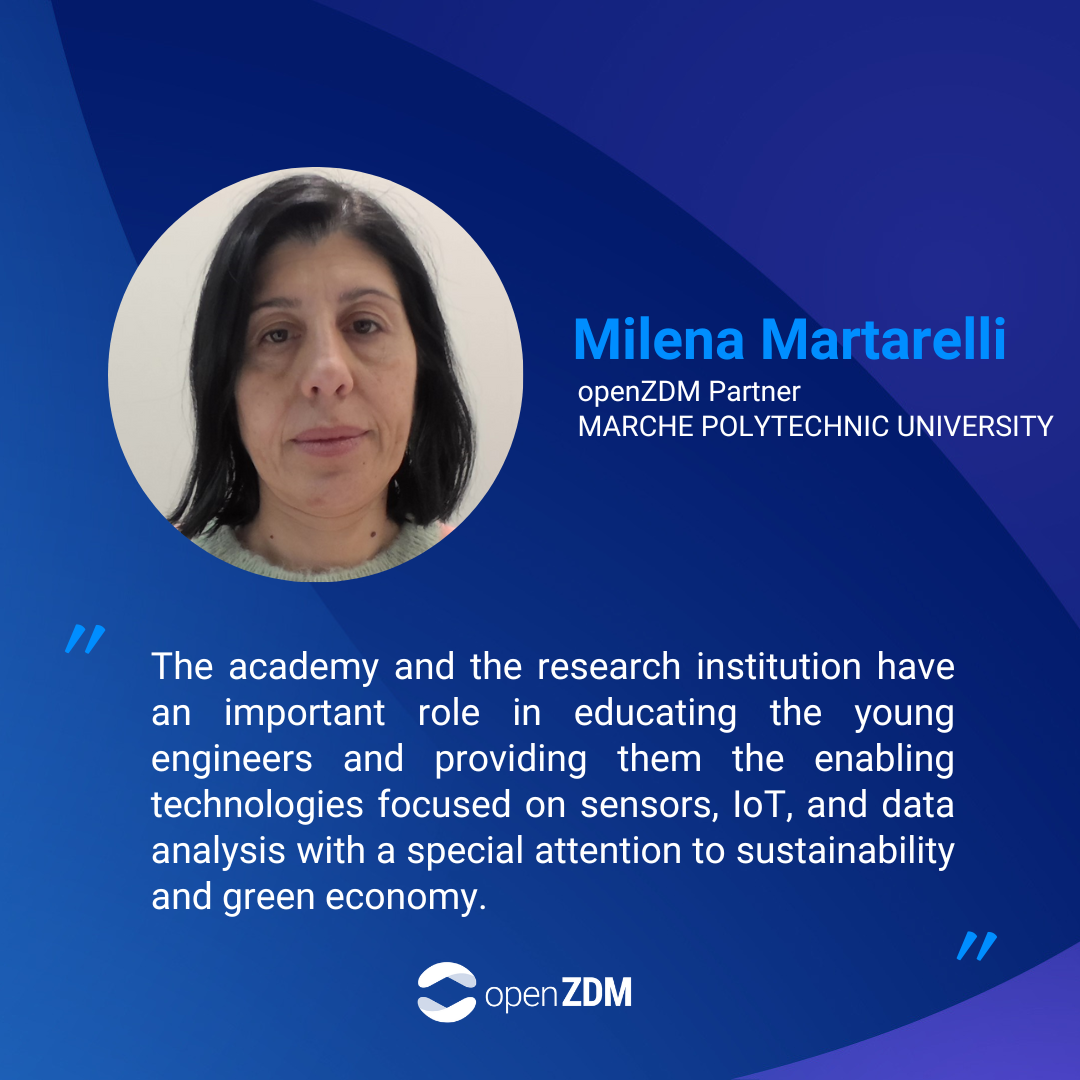Insights from Università Politecnica delle Marche: Exploring the future and sustainability in Manufacturing

We continue to investigate the Future of Manufacturing & Sustainability. This time, we talked with Associate Professor Milena Martarelli, our partner from Università Politecnica delle Marche.
1. How do you envision the convergence of future manufacturing, sustainable practices, and advanced technologies influencing academic curricula and research priorities in engineering and related fields?
The Italian academic community in industrial engineering is fully aware about the relevance of sustainability for the future of the industrial manufacturing, Italian particularly.
We are convinced that same thoughts are shared at European level, therefore education in manufacturing engineering is undergoing a transformation towards a more interdisciplinary approach, not only technical. In fact, sustainability requires going beyond the traditional vertical education programs.
Sustainable manufacturing spans across multiple disciplines addressing economic, social and environmental issues in a holistic point of view. Just to give an example, Università Politecnica delle Marche has launched a new master’s degree program in Green Industrial Engineering.
The program, in addition to traditional manufacturing engineering courses, specifically addresses environmental, economic and social sustainability of the plant infrastructures and the production systems, with attention to renewable energies and their better exploitation and to digitalization of manufacturing industry.
2. What are some innovative approaches or technologies that manufacturers can adopt to balance economic growth with sustainability and responsible resource consumption?
The paradigm of zero-defect manufacturing embodies a portfolio of actions addressing both economic growth and sustainability. For example, any action towards improving production efficiency or reduction of defects simultaneously impact positively on economic savings and environmental sustainability. If implemented effectively, zero defect manufacturing is a win-win approach from both the green and the circular economic point of view.
3. From a research perspective, what collaborative efforts or interdisciplinary approaches do you think are essential to foster innovation and address the complex challenges faced by the manufacturing industry in the coming years?
Since the manufacturing industry is going towards zero defect processes and digitalization, in perspective it will be crucial to improve the knowledge on innovative sensors and measurement systems to be applied in process monitoring and early defect detection and on data processing and data quality for improving the robustness of decision making.
The academy and the research institution have an important role in educating the young engineers and providing them the enabling technologies focused on sensors, IoT, and data analysis with a special attention to sustainability and green economy.
Short Biography
Milena Martarelli is Associate Professor at the Università Politecnica delle Marche (Italy) in Mechanical and Thermal Measurements and Testing. She owns 25 years’ experience in noncontact measurement systems for industrial process monitoring and product quality assessment and diagnostics. She obtained a PhD in structural dynamics in 2001 at the Imperial College of London. Since then, she worked as a researcher at the eCampus telematic university and at the Università Politecnica delle Marche.


